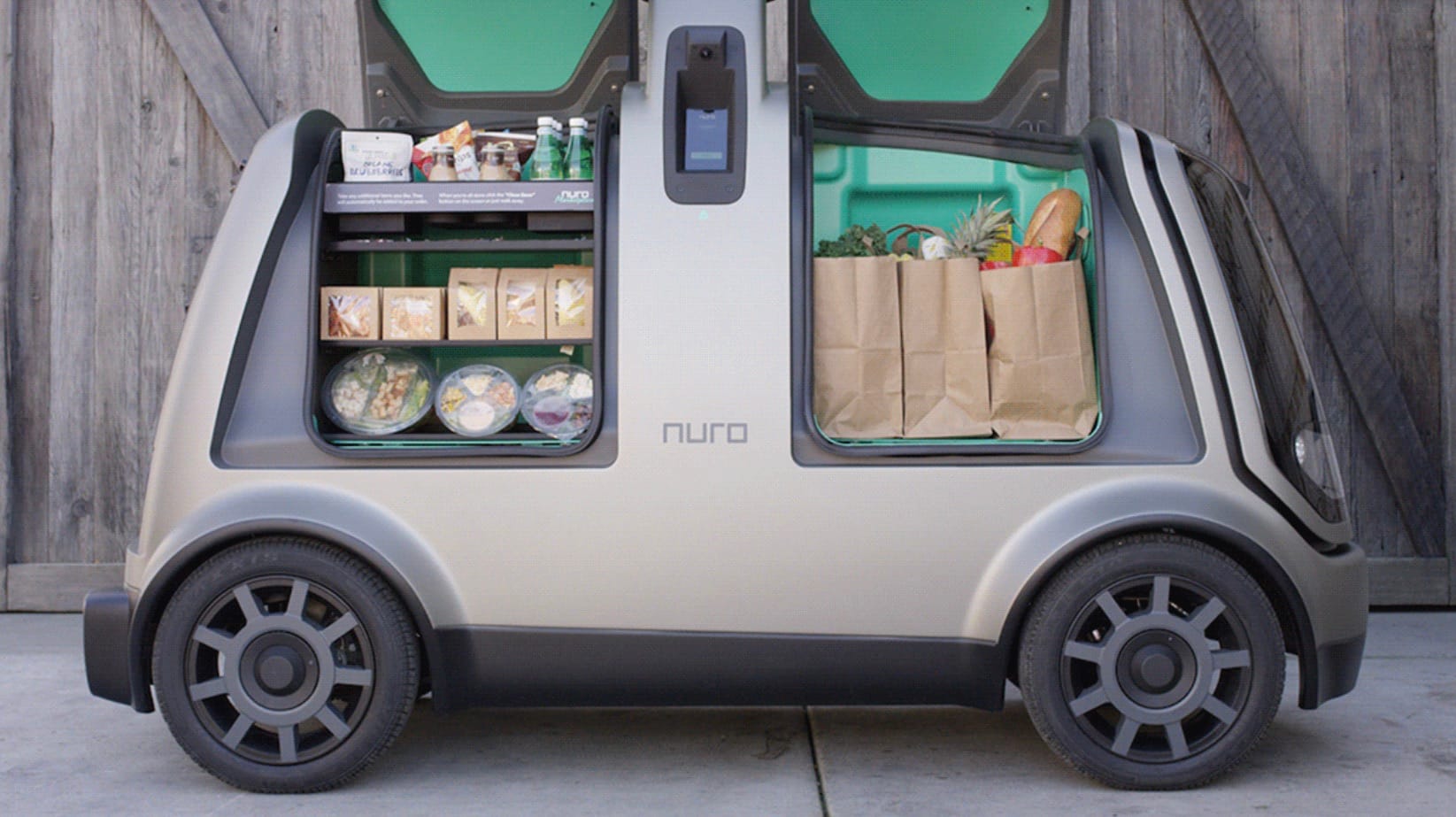
Langsam aber sicher nimmt das Rennen um selbstfahrende Autos fahrt auf, was man nicht zuletzt an den steigenden Summen sehen kann, die in die Startups des Sektors gesteckt werden.
Softbank hat Nuro auserkoren, mit seinem Vison Fund ein, zwei, drei Schritte nach vorn zur bringen. Nuro hat vom Vision Fund 940 Millionen US-Dollar erhalten, was die Bewertung auf 2,7 Milliarden US-Dollar hochtreibt. Das ist viel, aber auch der Modus Operandi beim 100 Milliarden US-Dollar schweren Vision Fund. (Ich habe letztes Jahr ausführlich über Softbank und den Vision Fund auf digital kompakt geschrieben.)
The news comes after Nuro became one of the first startups in the world to begin operating a fully driverless commercial service on public roads.
Under a deal announced last year, a Kroger-owned Fry's Foods store in the Phoenix area is using Nuro's technology to deliver groceries to nearby customers. Initially, the deliveries were conducted by modified Toyota Priuses. But in December, Nuro added two custom-designed robots to its fleet. These robots are smaller than a conventional car and are fully driverless—they don't even have space inside for a human driver to sit.
"Our goal this year is to really scale to an entire city worth of operation," CEO Dave Ferguson told Ars last week.
Nuro baut selbstfahrende Roboter für die letzte Meile (siehe Foto oben):
While Nuro's two custom robots are fully driverless, they are currently being followed around by human-driven vehicles with the capacity to intervene if the robots malfunction. Ferguson told Ars that he hopes to stop using the chase vehicles by next quarter.
Nuro was founded in 2016 by Ferguson and Jiajun Zhu, both veterans of Google's self-driving car project.
Das passt genau in die (teilweise eher banale) Vision von Masayoshi Son, Gründer & CEO von Softbank und der vielleicht weltbeste Dealmaker, was das Erschließen von Geldquellen angeht. Lesenswert dazu dieses Porträt von Son in Fast Company, das vor einem Monat erschienen ist.
Die zweite große Nachricht: Sequoia und Amazon investieren in Aurora in einer 530 Millionen US-Dollar schweren Finanzierungsrunde. Die Bewertung von Aurora liegt jetzt bei mehr als 2,5 Milliarden US-Dollar.
Sequoia’s “stamp of approval,” (as Urmson calls it) at such an early stage is significant. The inclusion of Amazon and T. Rowe Price are the two investors that show a long-term strategy has been put into play.
Aurora will likely need more capital as it develops a “full-stack solution” for self-driving vehicles. So, its choice of investors are critical.
Aurora arbeitet an Level 4-Autonomie:
Aurora engineers are focusing on Level 4 autonomy, a designation by SAE International that means the car takes over all of the driving in certain conditions. Level 4 autonomy can be applied in different ways. And while most might assume it translates into moving people around in robotaxis, autonomy can also be applied to the movement of goods.
In der Tat ist das besonders im Logistik-Sektor ein interessanter Aspekt.
Aurora hat bereits Partnerschaften mit VW, Hyundai und Byton. Im Fall von VW wurde die Partnerschaft vor einem Jahr, im Januar 2018, verkündet.
Amazons Statement:
“We are always looking to invest in innovative, customer-obsessed companies, and Aurora is just that,” Amazon said in an emailed statement. “Autonomous technology has the potential to help make the jobs of our employees and partners safer and more productive, whether it’s in a fulfillment center or on the road, and we’re excited about the possibilities.”

